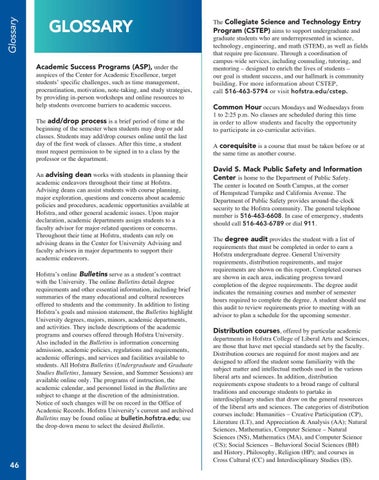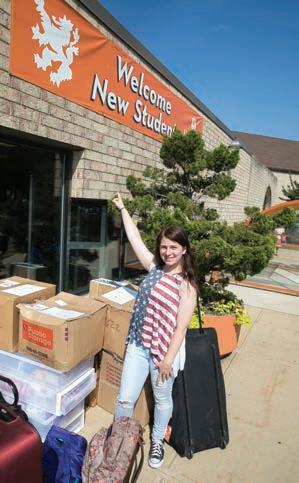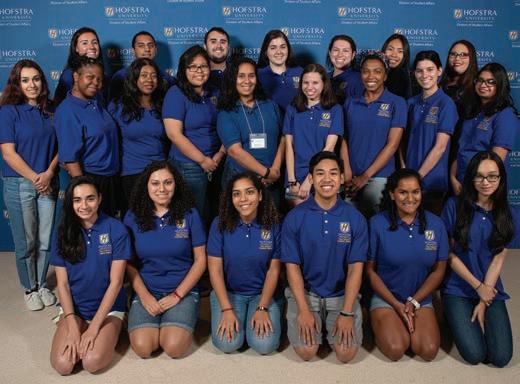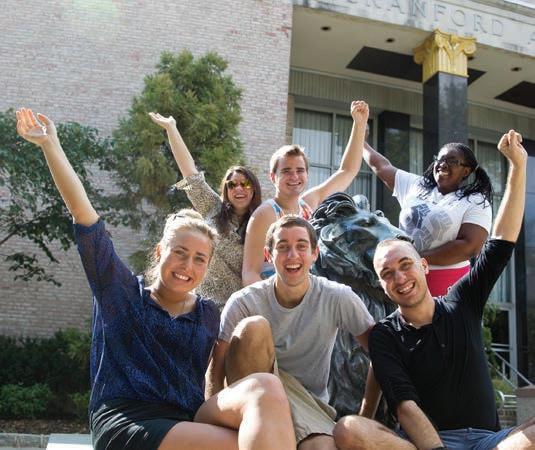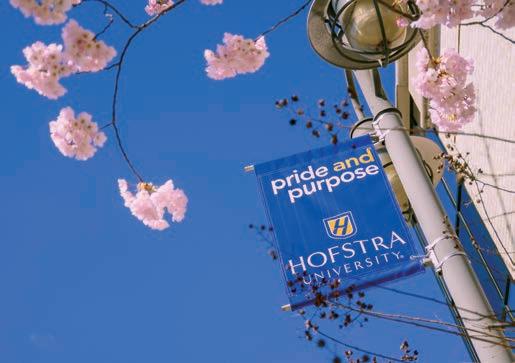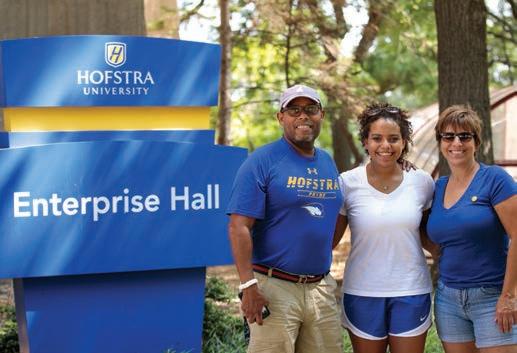Glossary
GLOSSARY Academic Success Programs (ASP), under the
auspices of the Center for Academic Excellence, target students’ specific challenges, such as time management, procrastination, motivation, note-taking, and study strategies, by providing in-person workshops and online resources to help students overcome barriers to academic success. The add/drop process is a brief period of time at the beginning of the semester when students may drop or add classes. Students may add/drop courses online until the last day of the first week of classes. After this time, a student must request permission to be signed in to a class by the professor or the department. An advising dean works with students in planning their academic endeavors throughout their time at Hofstra. Advising deans can assist students with course planning, major exploration, questions and concerns about academic policies and procedures, academic opportunities available at Hofstra, and other general academic issues. Upon major declaration, academic departments assign students to a faculty advisor for major-related questions or concerns. Throughout their time at Hofstra, students can rely on advising deans in the Center for University Advising and faculty advisors in major departments to support their academic endeavors. Hofstra’s online Bulletins serve as a student’s contract with the University. The online Bulletins detail degree requirements and other essential information, including brief summaries of the many educational and cultural resources offered to students and the community. In addition to listing Hofstra’s goals and mission statement, the Bulletins highlight University degrees, majors, minors, academic departments, and activities. They include descriptions of the academic programs and courses offered through Hofstra University. Also included in the Bulletins is information concerning admission, academic policies, regulations and requirements, academic offerings, and services and facilities available to students. All Hofstra Bulletins (Undergraduate and Graduate Studies Bulletins, January Session, and Summer Sessions) are available online only. The programs of instruction, the academic calendar, and personnel listed in the Bulletins are subject to change at the discretion of the administration. Notice of such changes will be on record in the Office of Academic Records. Hofstra University’s current and archived Bulletins may be found online at bulletin.hofstra.edu; use the drop-down menu to select the desired Bulletin.
46 46
The Collegiate Science and Technology Entry Program (CSTEP) aims to support undergraduate and graduate students who are underrepresented in science, technology, engineering, and math (STEM), as well as fields that require pre-licensure. Through a coordination of campus-wide services, including counseling, tutoring, and mentoring – designed to enrich the lives of students – our goal is student success, and our hallmark is community building. For more information about CSTEP, call 516-463-5794 or visit hofstra.edu/cstep.
Common Hour occurs Mondays and Wednesdays from 1 to 2:25 p.m. No classes are scheduled during this time in order to allow students and faculty the opportunity to participate in co-curricular activities.
A corequisite is a course that must be taken before or at the same time as another course.
David S. Mack Public Safety and Information Center is home to the Department of Public Safety.
The center is located on South Campus, at the corner of Hempstead Turnpike and California Avenue. The Department of Public Safety provides around-the-clock security to the Hofstra community. The general telephone number is 516-463-6608. In case of emergency, students should call 516-463-6789 or dial 911. The degree audit provides the student with a list of requirements that must be completed in order to earn a Hofstra undergraduate degree. General University requirements, distribution requirements, and major requirements are shown on this report. Completed courses are shown in each area, indicating progress toward completion of the degree requirements. The degree audit indicates the remaining courses and number of semester hours required to complete the degree. A student should use this audit to review requirements prior to meeting with an advisor to plan a schedule for the upcoming semester.
Distribution courses, offered by particular academic
departments in Hofstra College of Liberal Arts and Sciences, are those that have met special standards set by the faculty. Distribution courses are required for most majors and are designed to afford the student some familiarity with the subject matter and intellectual methods used in the various liberal arts and sciences. In addition, distribution requirements expose students to a broad range of cultural traditions and encourage students to partake in interdisciplinary studies that draw on the general resources of the liberal arts and sciences. The categories of distribution courses include: Humanities – Creative Participation (CP), Literature (LT), and Appreciation & Analysis (AA); Natural Sciences, Mathematics, Computer Science – Natural Sciences (NS), Mathematics (MA), and Computer Science (CS); Social Sciences – Behavioral Social Sciences (BH) and History, Philosophy, Religion (HP); and courses in Cross Cultural (CC) and Interdisciplinary Studies (IS).
46
